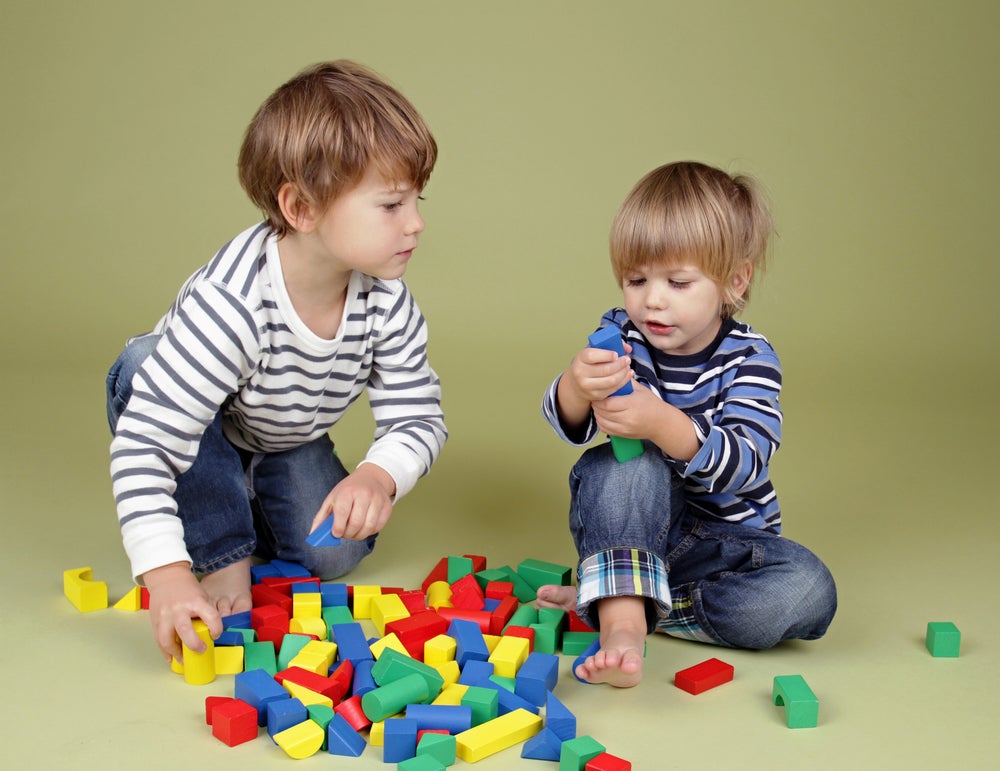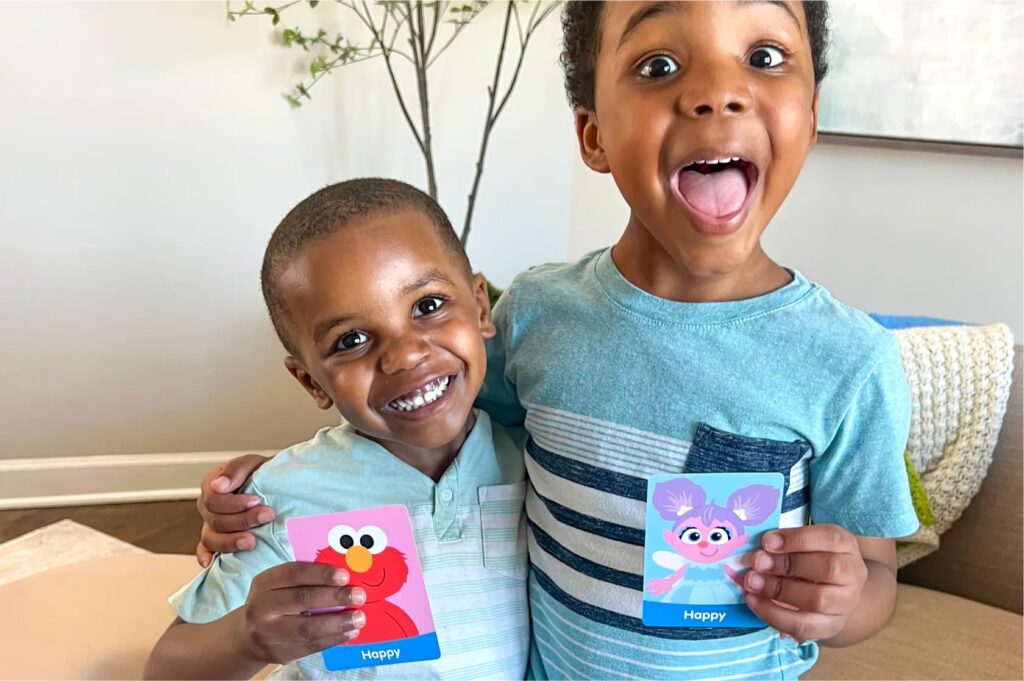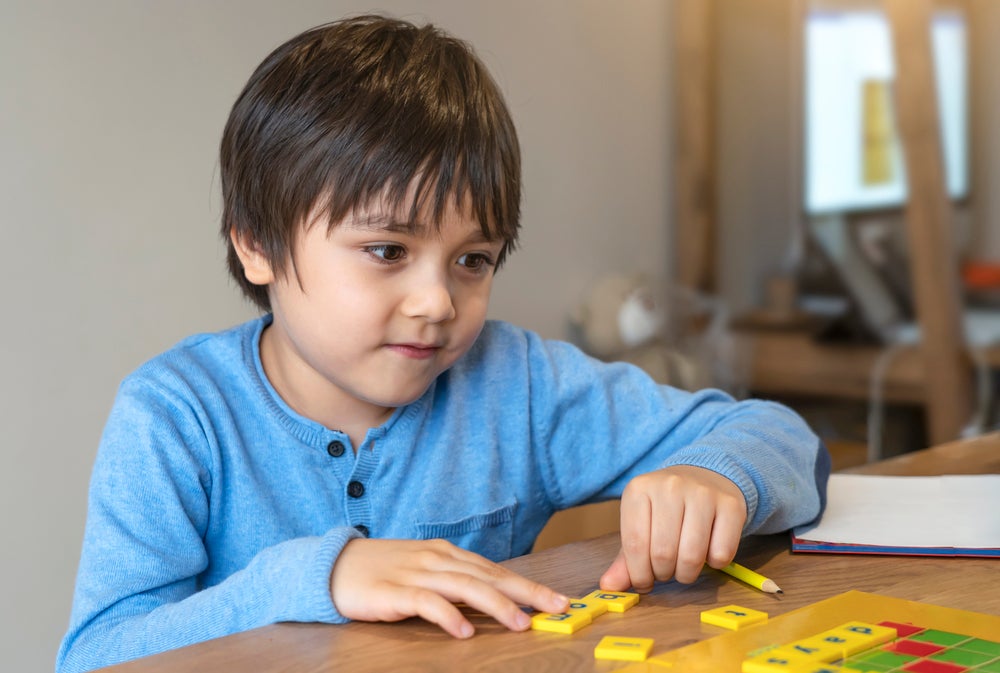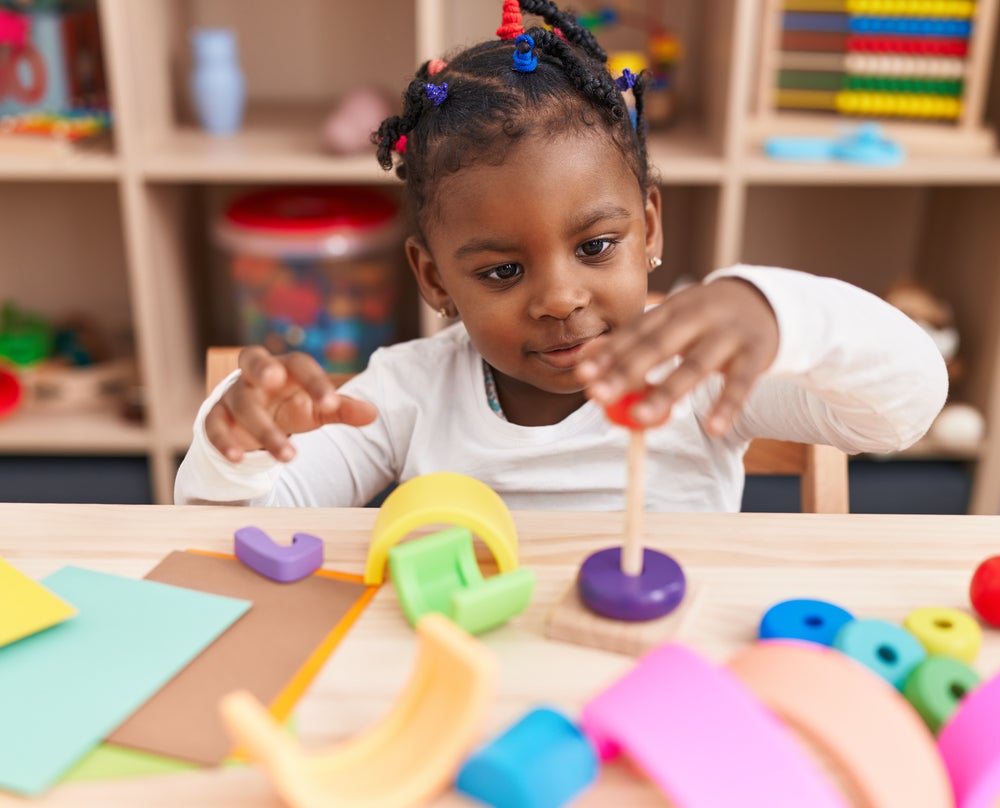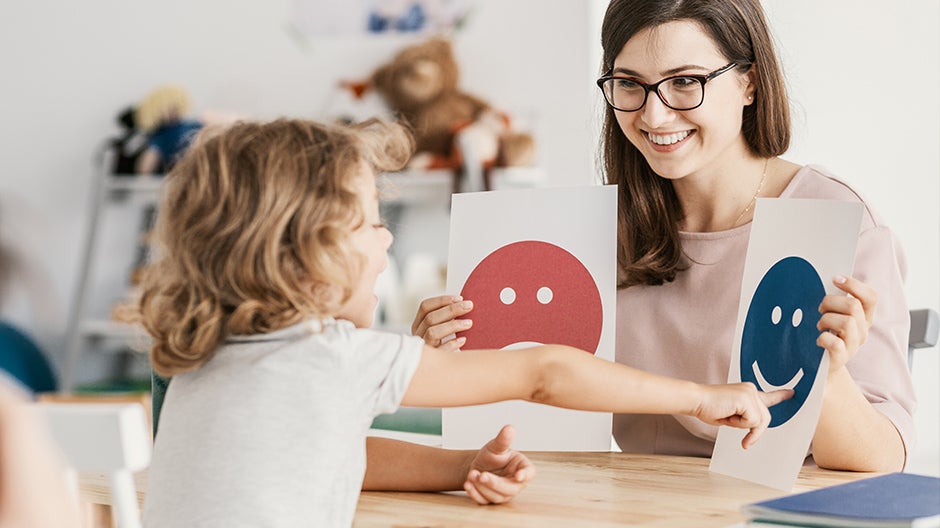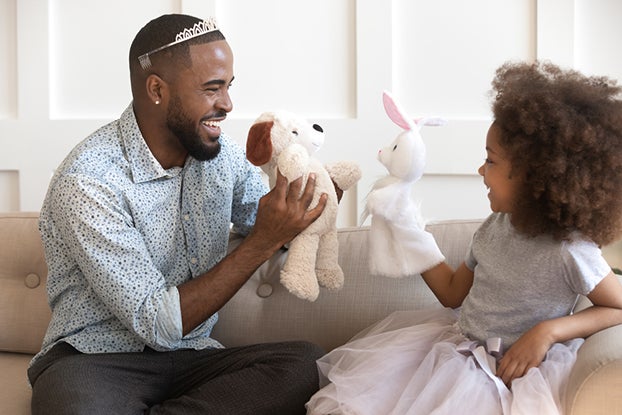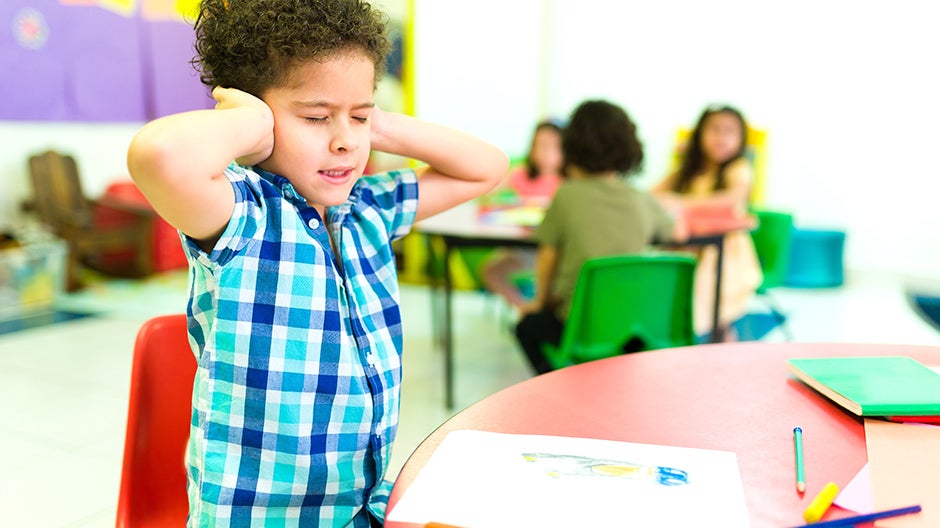When your child starts preschool, they’ll also start formal reading instruction—perhaps for the first time! This is a fun, exciting moment for many families, and that’s great, because reading is a Core Skill, one of the 5 C’s at the heart of the Begin Approach to helping kids thrive in school and life.
Wondering what preschool reading looks like in the classroom, and how you can help your kids? Begin’s early learning experts have you covered.
The Short Cut
- Reading is a Core Skill, one of the 5 C’s that help kids thrive in school and life
- Strong early reading skills help kids in all other areas of formal (and informal) learning
- Preschoolers learn a lot about reading: from listening carefully and phonological awareness to the alphabet, story recall, and understanding how books work
- Parents can help teach preschool reading at home by reading to their kids daily, practicing the alphabet, making up stories together, and playing phonological awareness games
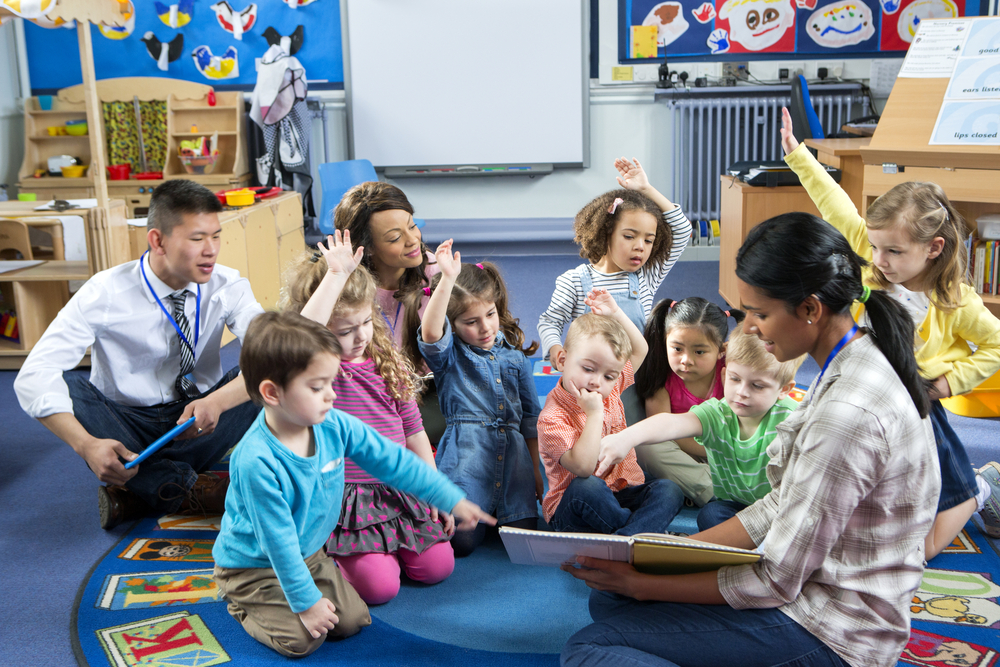
What Kids Learn in Preschool Reading
Learning to read is a complex process. What exactly your preschooler learns will vary depending upon their school’s curriculum, but it should cover a whole host of reading readiness skills. Before your child cozies up with a favorite book on their own, they’ll be working on the following:
Listening
One of the first (and most important) lessons your preschooler will learn is how to listen.
The way kids listen in the classroom and the way they listen at home are likely very different. The attentive listening necessary for successful learning takes time for many kids to develop.
And that’s OK! During preschool, your child will learn how to listen carefully so they can absorb and execute their teachers’ instructions. An added bonus—their listening skills will improve at home, too!
Listening attentively is particularly important during preschool reading. In order to properly receive and process all the information they’ll get from a story, your child needs to have their ears “open” and their brains “on.”
Literary Responsiveness
Stories are all about emotions. Your child will likely respond to them instinctively. When a character does something bad or silly, they’ll react to the action with disapproval or laughter.
The more engaging the book, the more dramatic a reaction your child may have. If they’re invested in the events of a story, they can display some intense responses! This is a good thing. Responsiveness to stories shows that your child is engaged, focused, and learning.Your child’s preschool teacher will pick books that appeal to a broad range of kids, but at home you can choose ones that appeal to your kids’ specific interests. Books that emphasize simple storylines, easy sentences, vibrant pictures, and plenty of action are great choices!
Phonological Awareness and Learning the Alphabet
Before learning how to read words, your child has to learn how words are made: with letters and sounds!
This is where phonological awareness, alphabetic skills, and letter-sound correspondence come into play.
Phonological awareness involves recognizing the sounds that make up words. For preschoolers, that means recognizing rhyming words and being able to count the number of syllables in a word, among other things.
When we say “letter-sound correspondence,” we mean that your child not only knows the alphabet but also knows which sounds match the alphabet letters. Your child will learn, for example, the sound represented by the letter T.Knowing how to recognize letters, both uppercase and lowercase, gets your preschooler ready for more advanced reading skills.

Reading Comprehension
You might remember “reading comprehension” as being about metaphors and symbolism. Not exactly a preschool reading skill! But kids do work on a lot of age-appropriate comprehension skills in preschool.
Your preschooler will learn how to summarize a story’s events by prioritizing important details. They’ll also use their recall skills to retell their favorite simple stories. These summaries will be sequential, too, as they learn how to follow and remember a story in order.
Preschoolers may ask questions about what happened in a story to learn more about it. Additionally, they’ll learn to answer simple questions about things that happened, how characters felt, or about concrete visual details (e.g., “What color was Rapunzel’s hair?”).
Focused comprehension skills help kids understand language and storytelling and develop a broader vocabulary. They’ll get better and better the more they practice!
Early Writing and Reading
What may look like scribbles to you are your preschooler’s attempts at writing! Pre-writing activities, like scribbling and drawing, are crucial for the development of your child’s reading and writing skills.
It’s perfectly fine that their writing may not be legible yet in preschool. What matters is that your child is expressing a desire to write and can distinguish between their own writing and drawing.
During preschool, your child will copy letters and words with increasing accuracy as their fine motor skills develop. The very first thing they’ll likely learn how to do is write and read their own name. If they have siblings, you might be surprised how quickly they start labeling things that belong to them!
As their writing skills develop during preschool, so will their reading skills and, as a result, their interest in stories. You may notice them starting to tell stories about events that happened during their day or things they read with their class.They may also grow more adventurous with reading, asking to read on their own (which will mostly include reciting their favorite book from memory), or engage in pseudo reading by “reading” store signs, birthday cards, or recipe instructions as you cook.
Book and Print Awareness
Last but not least, your child’s preschool reading instruction will likely include working on book and print awareness skills. That means, broadly, that they’ll learn how books work.
They’ll discover how to use the information on book covers, like illustrations, to get hints about a story. They’ll learn what the author and illustrator do, as well as how to identify a book’s title, table of contents, and spine.
They’ll also work on how to use books properly: pages turn from right to left, reading happens from left to right and top to bottom, and the spaces between words help us read. Your child will learn how pictures and illustrations support the information they hear and read in stories as well.
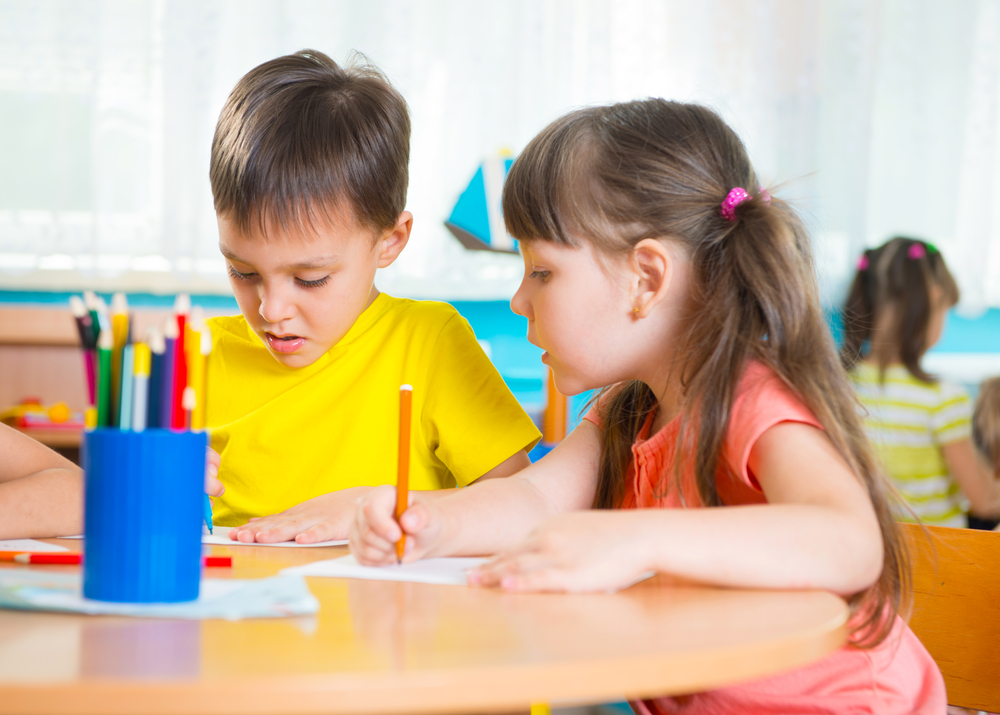
Strengthening Preschool Reading Skills
Practice the Alphabet
Practicing the alphabet is a great way to support your child’s preschool reading skills!
Singing the alphabet song and playing alphabet games are easy, fun ways to help them understand the alphabetic principle and reinforce what they’re learning in preschool.
Play Phonological Awareness Games
Our HOMER app offers several phonological awareness games you and your child can play together. They’re simple, effective, and lots of fun!Phonological awareness games help develop your child’s ability to understand language by rhyming or swapping around different letter sounds in words. These games will help them with some of the foundational reading skills they’ll use throughout preschool and beyond!
Work on Their Fine Motor Skills
There are many ways to develop your preschooler’s writing skills beyond tracing letters (although that helps too, and some kids find it surprisingly enjoyable!). Anything that improves their fine motor skills in general will help them learn to write, too.
For example, you can make time for your child to craft with you. Cut, glue, paint, and trace different shapes, numbers, letters, or imaginative illustrations. All of these things help your child’s fine motor skills.You can also include your child when you have a writing task. If someone has a birthday coming up and you’re writing a card for them, leave a little space for your child to “write” their own message. You may have to translate for the recipient, but these moments help kids feel accomplished and excited about writing (and add an adorable flourish to the card).
Make Up Stories Together
Who says you have to limit your child to reading books that are already published? It might be a nice change of pace to make up a story together! You can write down your story and pair it with illustrations or just tell it out loud.
Start by providing a scenario. For example, “One sunny day, Mr. Turtle was sitting on a log.” Then ask your child to tell you what might happen next. Repeat the process until your story is complete!
Preschool Reading Is Different for Every Child
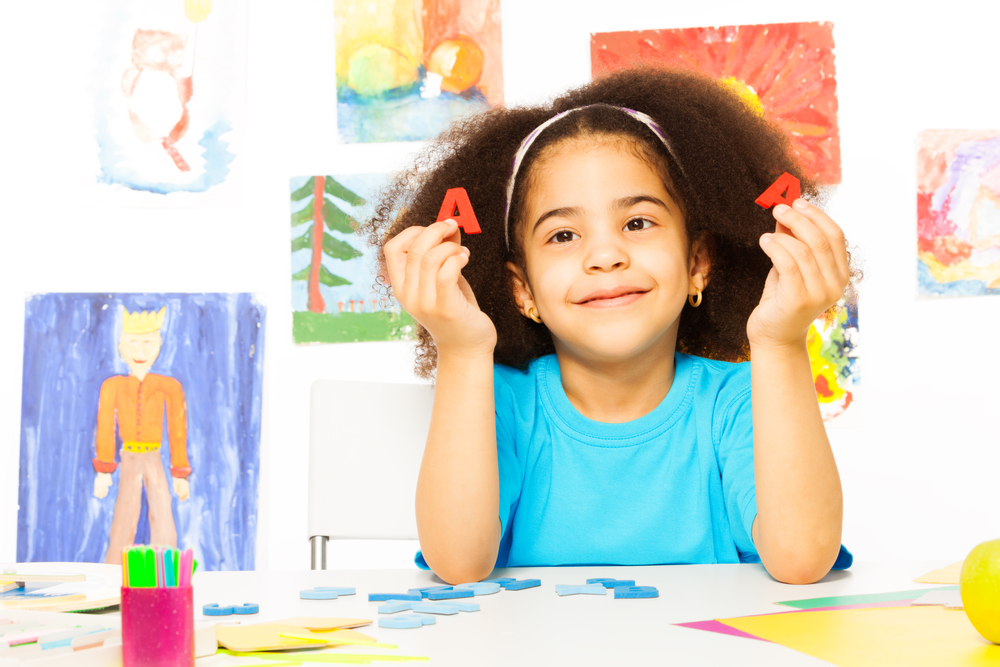
We want to leave you with a reminder that while there’s a lot of research on how kids learn to read, not every child’s path to reading looks the same in preschool. Your child may learn some of these skills a little faster or slower than you expect.
That’s perfectly OK! Kids learn at their own pace. Focus on progress over perfection and celebrate each new skill they learn. Helping your child discover that reading is fun and joyful is important too!
And don’t forget—Begin is always here to lend a helping hand in your child’s reading journey. Whether it’s through HOMER or our Early Learner Program, we’re ready and waiting with tons of learning activities just for them!


